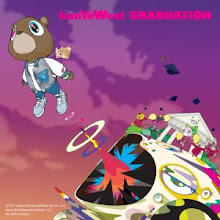
The U.S. population grew by more than 205 million people during the century, more than tripling from 76 million in 1900 to 281 million in 2000. That is a lot of change. In China now there are about 1,298,847,624 people and in India about 1,065,070,607 , United States about 293,027,571 , Indonesia 238,452,952 , Brazil 184,101,109.
If the population is growing and the food supply keeps the same, then the food supply will decrease drastically. And I don't know , maybe in 20 years there might be fight over food.
If the population is growing and the food supply keeps the same, then the food supply will decrease drastically. And I don't know , maybe in 20 years there might be fight over food.
And how about water? Only 1% of the whole water is drinkable. Some people say that the water price would be more problem than the oil & gas price.
We people should be ready for something like this.
We people should be ready for something like this.

3 comments:
wow~~~i don't want to fight for food
Wow...that is interesting..^^
I'm Semi
so.... come to my blog and write comment,too...
and I like your essay
We're already experiencing food shortages in the world. Even in industrialized nations, the prices for food are soaring. For example, the price of rice has increased a lot.
So what do you think we need to do?
1. Is China's "one child" policy really immoral and a deprivation of individual civil rights, or is it a civic, responsible, response to an urgent problem? In the 1960's there was a strong movement urging ZPG-zero population growth. Is it time to resurrect that concept?
2. What about the U .S.'s funding of "bio-fuel" research and development using only corn, that has diverted to lucrative fuel production the food crop that was previously exported to countries in need? Why isn't the U.S. promoting bio-fuel from other, non-food plants?
3. And right here in the CNMI, we're talking (more like fighting) about conservation of our marine resources versus unlimited commercial fishing rights. Have you checked out the state of our oceans-now with dead zones, depleted fish stocks, some fish completely disappearing, and a radical overall decline in total number of fish in the ocean. Will future generations even know what fish are?
Good post, but there are lots more interesting questions to follow up on.
Post a Comment